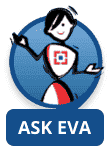You've Been Logged Out
For security reasons, we have logged you out of HDFC Bank NetBanking. We do this when you refresh/move back on the browser on any NetBanking page.
OK- Home
- PAY Cards, Bill Pay
- Money Transfer
- To Other Account
- To Own Account
- UPI (Instant Mobile Money Transfer)
- IMPS (Immediate Payment 24 * 7)
- RTGS (Available 24 * 7)
- NEFT (Available 24 * 7)
- RemitNow Foreign Outward Remittance
- Remittance (International Money Transfers )
- Religious Offering's & Donation
- RemitNow (For Expat)
- Forex Services for students
- Pay your overseas education fees with Flywire
- ESOP Remittances
- Visa CardPay
- Cards
- Bill Payments
- Recharge
- Payment Solutions
- Money Transfer
- SAVE Accounts, Deposits
- INVEST Bonds, Mutual Funds
- BORROW Loans, EMI
- INSURE Cover, Protect
- OFFERS Offers, Discounts
- My Mailbox
- My Profile
- Home
- PAY Cards, Bill Pay
- Money Transfer
- To Other Account
- To Own Account
- UPI (Instant Mobile Money Transfer)
- IMPS (Immediate Payment 24 * 7)
- RTGS (Available 24 * 7)
- NEFT (Available 24 * 7)
- RemitNow Foreign Outward Remittance
- Remittance (International Money Transfers )
- Religious Offering's & Donation
- RemitNow (For Expat)
- Forex Services for students
- Pay your overseas education fees with Flywire
- ESOP Remittances
- Visa CardPay
- Cards
- Bill Payments
- Recharge
- Payment Solutions
- Money Transfer
- SAVE Accounts, Deposits
- INVEST Bonds, Mutual Funds
- BORROW Loans, EMI
- INSURE Cover, Protect
- OFFERS Offers, Discounts
- My Mailbox
- My Profile
- Home
- PAY Cards, Bill Pay

- Money Transfer
- To Other Account
- To Own Account
- UPI (Instant Mobile Money Transfer)
- IMPS (Immediate Payment 24 * 7)
- RTGS (Available 24 * 7)
- NEFT (Available 24 * 7)
- RemitNow Foreign Outward Remittance
- Remittance (International Money Transfers )
- Religious Offering's & Donation
- RemitNow (For Expat)
- Forex Services for students
- Pay your overseas education fees with Flywire
- ESOP Remittances
- Visa CardPay
- SAVE Accounts, Deposits
- INVEST Bonds, Mutual Funds
- BORROW Loans, EMI
- INSURE Cover, Protect
- OFFERS Offers, Discounts
- My Mailbox
- My Profile
- Personal
- Resources
- Learning Centre
- ThisPageDoesNotCntainIconInvest
- How you can spend to your heart content and still be financially responsible
How you can spend to your heart’s content & Still Be Financially Stable
Getting our salary at the end of each month naturally leaves us with a sense of fulfilment and financial independence. But it’s easy to be lulled into a sense of false security and assume that our expenses today will not burden us financially tomorrow – because we think we will earn more in future and be better prepared to deal with expenses.
However, life is unpredictable. It is important to understand there may be an unprecedented need for money at some point in our life. One instance is the high risk to our health. Lifestyle diseases such as cancer and diabetes are rampant today, and the cost of treating these can be daunting. Then there’s a need to save for a post-retirement nest-egg so that we can continue to lead financially independent lives.
This highlights the need to save and invest. The best time to start saving is right from the time you start earning. Savings, like expenses, should be given careful thought. Don’t be discouraged from spending; only be encouraged to invest. Savings and investments should be a part of one’s life, and it calls for a certain amount of dedication and discipline.
By investing in different mediums, you can save, cover your expenses, and let your idle funds grow. Let’s look at some of them:
1. Bank Fixed Deposits
These are a popular, safe, and convenient choice for savings and investment. FDs offer a fixed rate of return on your investment. In addition, you have an option to decide your deposit term as per your convenience. However, your interest income may not be tax-free, depending on the income bracket your fall in.
Looking to apply for a Fixed Deposit? Click here now.
2. Bonds
This is another way of investing securely. Popular government bond schemes such as National Saving Certificates are a reliable choice. Bonds carry a lower risk than investing in stocks. You earn money at a fixed rate of interest with a fixed lump sum amount payable at maturity. There is no maximum limit for investment. However, the income earned is taxable under the Income Tax Act 1961. Bonds offer minimal returns since the rate of interest is fixed based on the cumulative amount invested.
3. Company Fixed Deposits
Compared to bank FDs, company FDs (those authorised by the RBI) fetch you a higher rate of interest. The rate of return is fixed, and it is recommended to make an investment that does not expose your funds to direct market risks. The catch here is that you need to choose your investment period wisely, as you are not allowed to withdraw any part of your funds before maturity. The minimum term is 12 months and the maximum is five years. The interest rate currently ranges from 9% to 12%.
4. Mutual Fund Investments
The trend today is to invest in equity-oriented hybrid schemes, where they make a higher investment in equity than debt. They are different from pure equity schemes which can be high-risk. Here, units are invested in different securities, spread across a wide cross-section of industries and sectors. This helps diversify the risks of the units performing, as the performance may not move in the same direction, in the same proportion, or at the same time.
These hybrid funds guarantee more safety for your invested money. There are times when one tends to invest 100% in large-cap funds because these tend to be less volatile than small or mid-cap funds. However, to fetch long-term gains, investment in equity-oriented funds for a minimum of 10 years can maximise your returns while playing it safe. The returns on equity investment have ranged from 11% to 15% in the last decade. It is now a wise decision as the market is continuously improving and people are becoming increasingly aware of mutual funds as a financial product.
There are a number of schemes which are launched from time to time with different investment objectives. As an investor, you should take into account your risk taking capacity, age factor, financial position, as the schemes offered invest in different types of securities.
In addition, the choice of investing in mutual funds is backed by convenience. Through a systematic investment plan (SIP), you can start investing a small amount – even as little as Rs 500 – every month. You can invest a portion of your salary; the sooner the better. Start early so that your money benefits from the power of compounding. SIP is recommended if you want to put a part of your income in the market, irrespective of the level the market is at. Hence the need for long-term investment – at least five years.
*Disclaimer: Mutual Fund Investments are subject to market risks. Read all scheme related documents carefully.
5. Unit Linked Insurance Plans
Also known as ULIP, this kind of investment gives you the dual benefit of equity/debt investment plus life insurance. (Term cover to secure an earning member’s loved ones in case of an unfortunate event which would help replace the earning member's salary). This also helps in the protection of various goals of dreams of an individual, especially through endowment or moneyback policies.
Your investment, in the form of the availability of annual premiums for the life insurance cover, will further determine the investment in equity/debt. The total premium amount will also determine your sum assured.
You have a choice to manage your investment portfolio with the option of 100% investment in equity (deductions and charges will vary). Individuals with a moderate appetite for risk can choose between equity and debt, and invest in ULIPs with a long-term perspective. The lock-in period is three to five years.
Death benefit under ULIP is completely tax-free. They provide the benefit of insurance income protection in case of death of the insured. In fact, if the market conditions continue to remain positive, the final payout can be higher than the sum assured because of the returns guaranteed by unit-linked investment. Payout is exempted from tax under Section 10 (10D) of the IT Act. The premium you pay is also eligible for deduction under Section 80C of the IT Act. As a young individual, you can take advantage of long term investing, especially in ULIPs for a life cover, along with market linked returns.
6. Health Insurance
A health insurance policy is a must-have. You should not consider it as an expense but as an investment to protect your health and wealth. Lifestyle diseases and health disorders are common these days. This underscores the need to plan and manage your medical expenses with the help of health insurance. It helps you to stay calm and composed in a health-related emergency. While your employer may offer health insurance, its best to invest in your own health insurance as a protection against any unexcepted medical costs that is not covered in your employer’s coverage.
Hospitalisation often incurs considerable expense. It can practically rob you of all your savings if you don’t have health insurance coverage. A health policy covers pre- and post-hospitalisation expenses, and also offers you tax exemption under Section 80D of the IT Act.
Last words
Expenses and investment must go hand-in-hand. Often your expenses may be higher than your monthly savings, so it makes sense to invest in compounding schemes such as mutual funds so your money can grow faster. Not only will your money grow manifold, you need not worry about the returns as the market sentiment is bullish and stable.
Always look for investment avenues that offer the power of compounding and deliver long-term benefits. Starting early is always beneficial. Also regularly revisit your investment goals as you mature as an investor. With HDFC Bank Investment Products, you can be assured of a safe and healthy financial future – while easily managing your expenses and living your life to the fullest!

What’s New?
-
HDFC Bank organizes Saveathon to create awareness on water scarcity Test
-
HDFC Bank conducts the 11th edition of its nationwide 'Blood Donation Drive'
-
Sustainable Livelihood Initiative by HDFC Bank is helping empower women across villages in Madhya Pradesh
-
HDFC Bank's 'Blood Donation Drive' on Friday, Dec 8
-
HDFC Bank MD Aditya Puri on Fortune Businessperson of the year list
false
false
false



On exiting, all chat history will be cleared